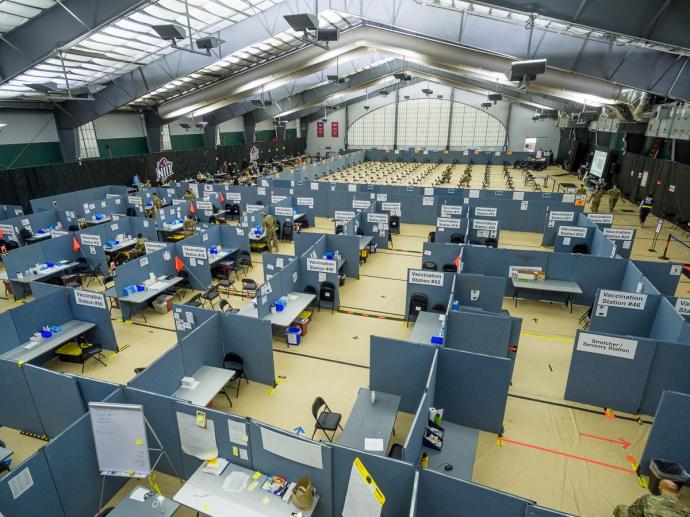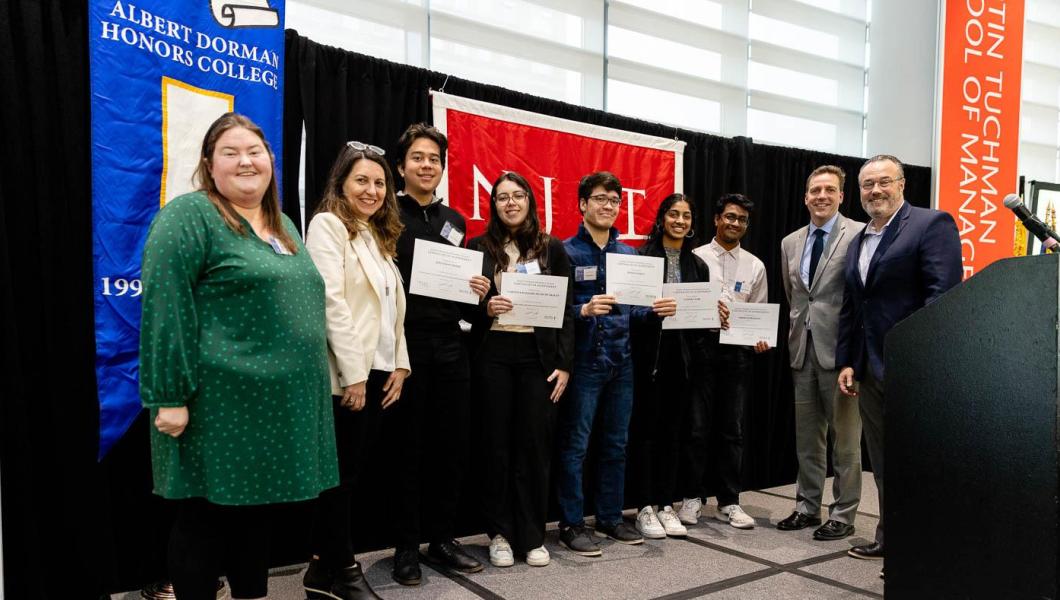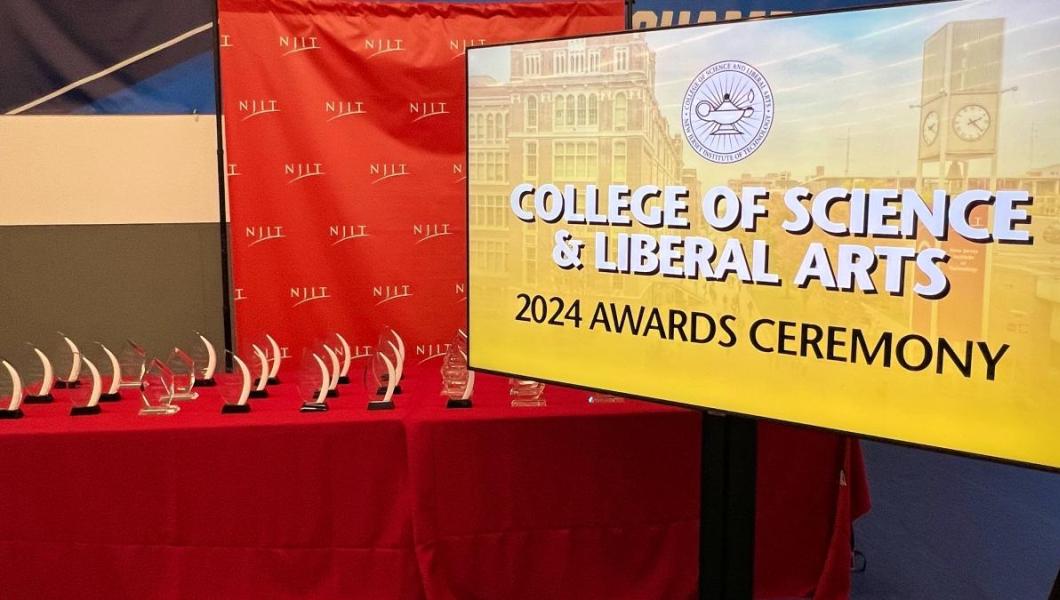Student Volunteers Put a Smile on a Vaccination Super Center

Engineering professor Chang Yaramothu ’13H, ’14, ’17, Abigail Varughese ’22, Rita Vought ’21 and FEMA’s Marc K. Raoul ’09 are some of the NJIT students, past and present, contributing engineering, emergency management and healthcare skills to the massive effort.
When a frail, elderly woman refused help at the FEMA-run vaccination site in NJIT’s Naimoli Center, Rita Vought ’21 knew just what to do. She sidled over, struck up a conversation, and subtly navigated her through the process, from registration to departure.
“She didn’t realize she was being helped, because we were talking the entire time,” recounted Vought, a biology student heading to medical school next fall, and one of nearly 150 NJIT volunteers to sign up for three-hour shifts at the facility.
No fewer than 25 students assist each day from 7 a.m. to 8 p.m. – managing the line outside, taking temperatures, registering people and answering their questions, and pushing the wheelchair-bound through the cavernous facility, FEMA’s largest in the state. Collectively, they speak nearly 20 different languages, including Bengali, Arabic, Russian, Portuguese and Tagalog, that are displayed on their name tags.
“The students do a really good job calming people down, particularly those most concerned about the impact of the vaccination, and helping immigrants who don’t speak English well,” says Lori Ross, FEMA’s voluntary agency liaison at the Newark site. “In some cases, with people in wheelchairs and those who are nervous, the volunteers stay by their side for the entire visit.”
New to the business of pandemic-scale vaccine administration, FEMA calls each of its community vaccination centers around the country a pilot from which it learns incrementally. What distinguishes the NJIT location, officials say, is the brigade of students who not only help run it, but present a bright-eyed, can-do face to the public from the moment they arrive.
Chang Yaramothu ’13H, ’14, ’17, an assistant professor of engineering technology at NJIT and advisor to the campus first aid squad he helped found, called FEMA in March to propose volunteers from NJIT’s healthcare-related programs “whose mission is to serve.” Darshan Desai, director of NJIT’s pre-health program, quickly assembled a list.
“While giving back to the community, this is a wonderful opportunity no class can teach,” Yaramothu notes.
“Interacting with patients, while learning to communicate (well), is an experience you need to love before going into medicine,” says Abigail Varughese ’22, a pre-med student who recounts soothing shot-seekers with residual qualms. “I’m so happy just to be a part of this.”
She adds, “My generation will be so much more equipped to cope in the event of another pandemic.”
The site, aimed at boosting vaccination rates among underserved, minority communities, delivered more than 6,000 shots on March 31, its first full day. But with daily rates declining nationwide, marketing the jabs successfully is now paramount.
“If you have a positive experience, you will come back for your second shot and you may also tell your friends and family about it,” notes FEMA’s Devin Kerins, the Newark site’s administrator.
“Good customer service is critical – we are the face of the federal government,” says Marc K. Raoul ’09 (Civil Engineering), an emergency management specialist for FEMA who has directed site assessment, planning and training in disaster areas, including after Hurricane Sandy, and who is back on campus helping run the vaccine operation. “As in engineering, we have very adaptable skills to address different needs in each emergency situation.”
Angela Garretson, NJIT’s chief external affairs officer, who first got the call from Newark Mayor Ras Baraka's office about potentially hosting the vaccination facility on the university campus, noted that it is also the first center to coordinate with the U.S Air Force.


